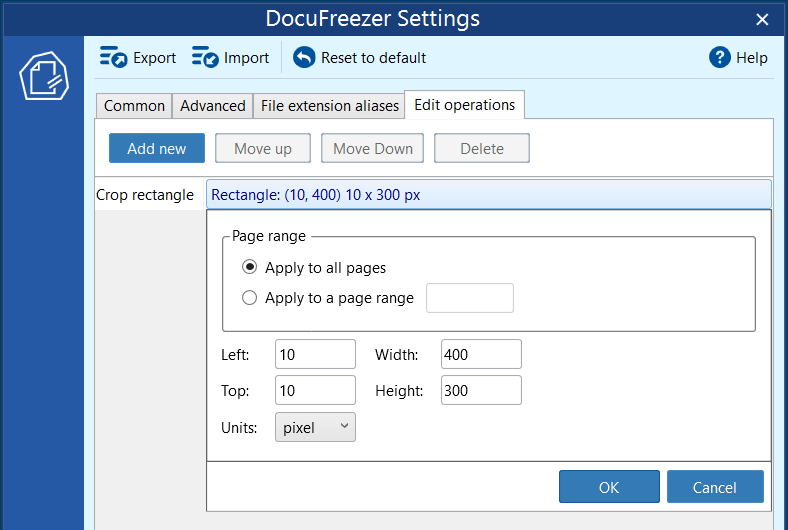To add operations to be performed with your files during conversion, go to the Settings → Edit operations tab in DocuFreezer. Here you can specify some operations to be performed in addition to file conversion.
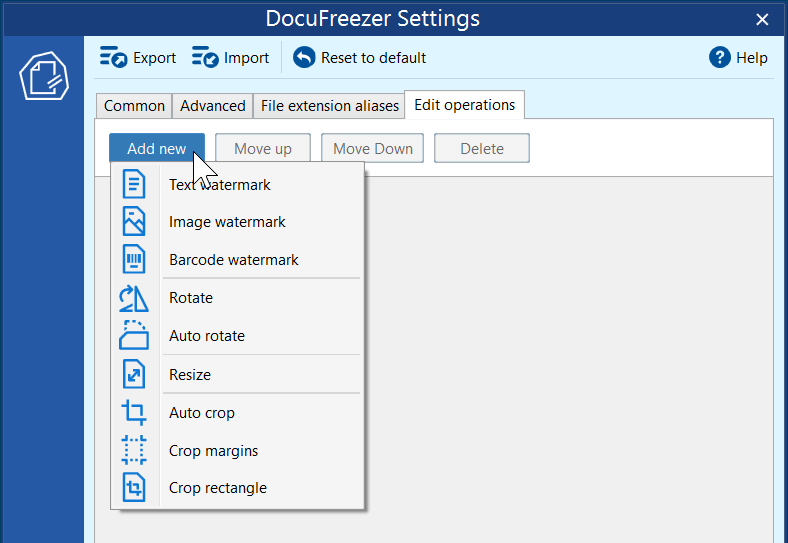
On this page
Watermarking
 Text watermark
Text watermark
The Text watermark operation enables you to create your own text watermark to add to pages or images during file conversion. By default, it adds the source page number (with the {srcfilepageno} macro) to the bottom right corner. You can adjust text style and use various built-in macros to add page numbers, file date and time, original document name, and other document-related data.
Learn more about Text watermark →
 Image watermark
Image watermark
To add a watermark from an image or image-like file (such as JPG, PNG, HTML, PDF), choose a file and customize its size and position (for example, behind the document's contents and in the top right corner). You can modify watermark size, opacity, rotation, and more.
Learn more about Image watermark →
 Barcode watermark
Barcode watermark
You can add a watermark containing a barcode, like QR Code or other types such as EAN, UPC, CODE 128, and Data Matrix. You can choose the type of barcode and adjust its position, size, rotation, and other settings, just like with other watermarks.
Learn more about Barcode watermark →
 PDF text annotation
PDF text annotation
You can apply text annotations to output PDFs using this operation. It allows you to add any text and choose typeface, font style, and other parameters. This operation is similar to Text watermark and has the same parameters, but it generally works faster since it doesn't involve re-rendering pages because the text is added on top of the document contents.
Rotation and Auto-Rotation
 Rotate
Rotate
The Rotate operation allows you to rotate input files clockwise or counterclockwise to a certain degree.
Note: Arbitrary angles are only possible for raster images. Please use straight angles for other types of documents, such as PDFs.

 Auto rotate
Auto rotate
You can enable automatic rotation of images or document pages. The operation's parameters allow you to keep the original document orientation (As in document) or force the output files' orientation to Portrait (vertical) or Landscape (horizontal).
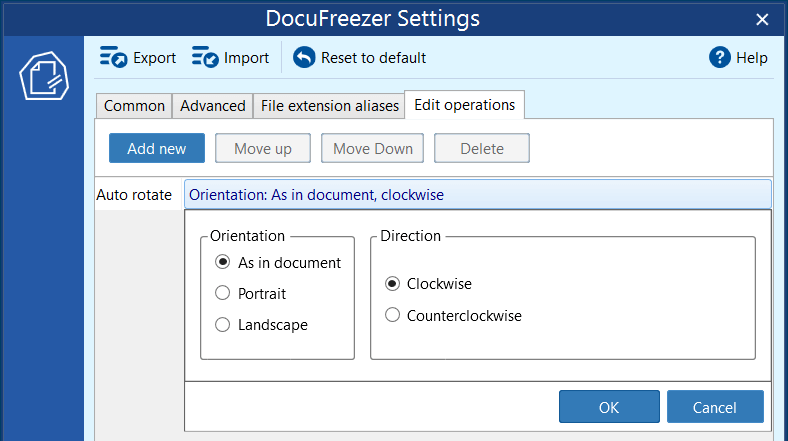
What's the difference between Rotate and Auto rotate?
Resizing
 Resize
Resize
The Resize operation lets you change the size of output images or document pages. You can specify a new size in pixels, millimeters, centimeters, inches, or percent. Various fitting modes are available: Fit…, Fill…, Thumbnail, or Stretch.
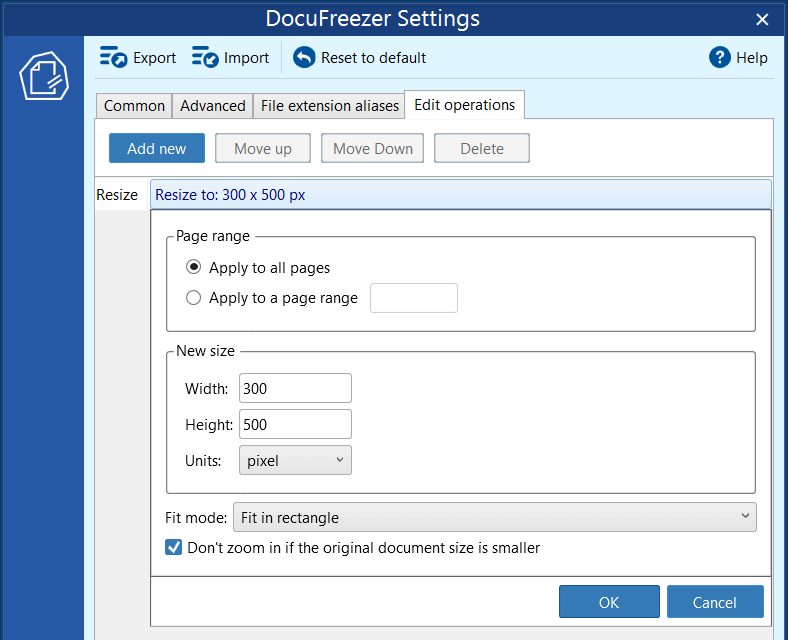
Cropping
 Auto crop
Auto crop
The Auto Crop operation automatically removes blank (white) margins from pages or images. A high Tolerance value allows you to define white less strictly. Experiment with this option to get the most appropriate result.
In addition, you can use the Apply to a page range option to apply the operation to specific pages or page ranges only.
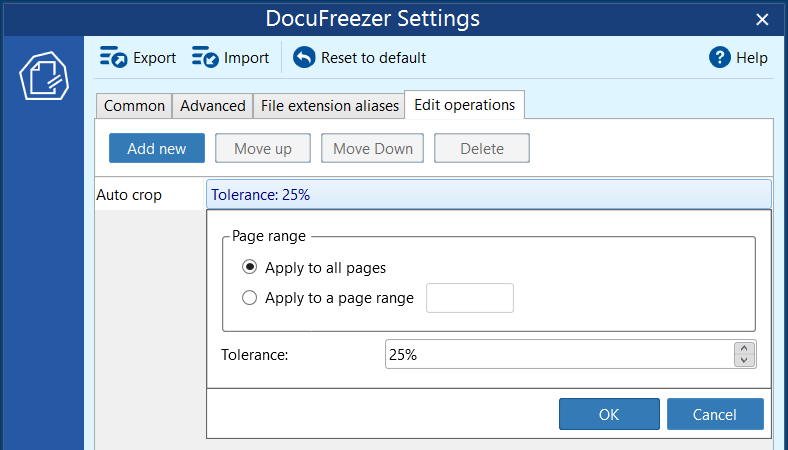
 Crop margins
Crop margins
The Crop margins operation performs image/page cropping based on margins that can be customized. You need to specify the indents (Left, Right, Top, Bottom) so that the program can crop your files.
Additionally, you can set Page range — to apply this operation to selected pages or page ranges. Enter page numbers and/or ranges separated by commas next to Apply to a page range. For example: 1,3,5-10
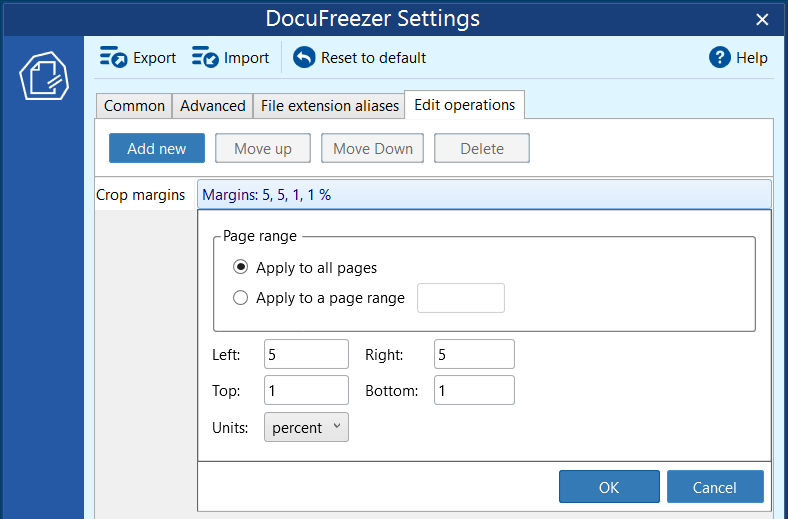
 Crop rectangle
Crop rectangle
The Crop rectangle operation crops the image/page by the border of a rectangle whose dimensions can be customized. You can set the width (Width), height (Height) of the rectangle and the indents from the left side (Left) and top (Top) of the page or image.
You can also set the Page range to apply this operation to selected pages or page ranges. Enter page numbers and/or ranges separated by commas next to Apply to a page range. For example: 1,3,5-10
